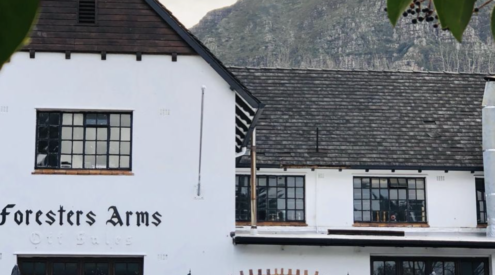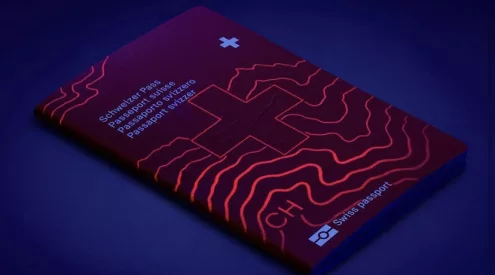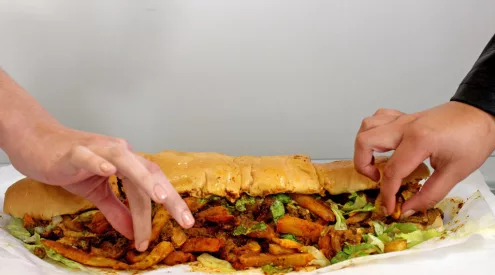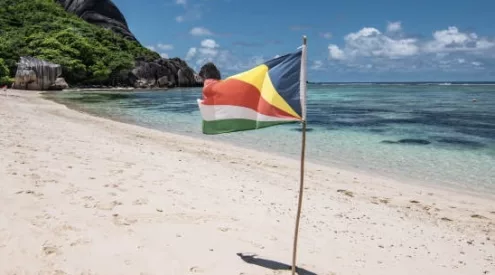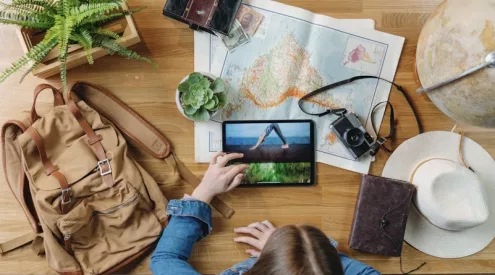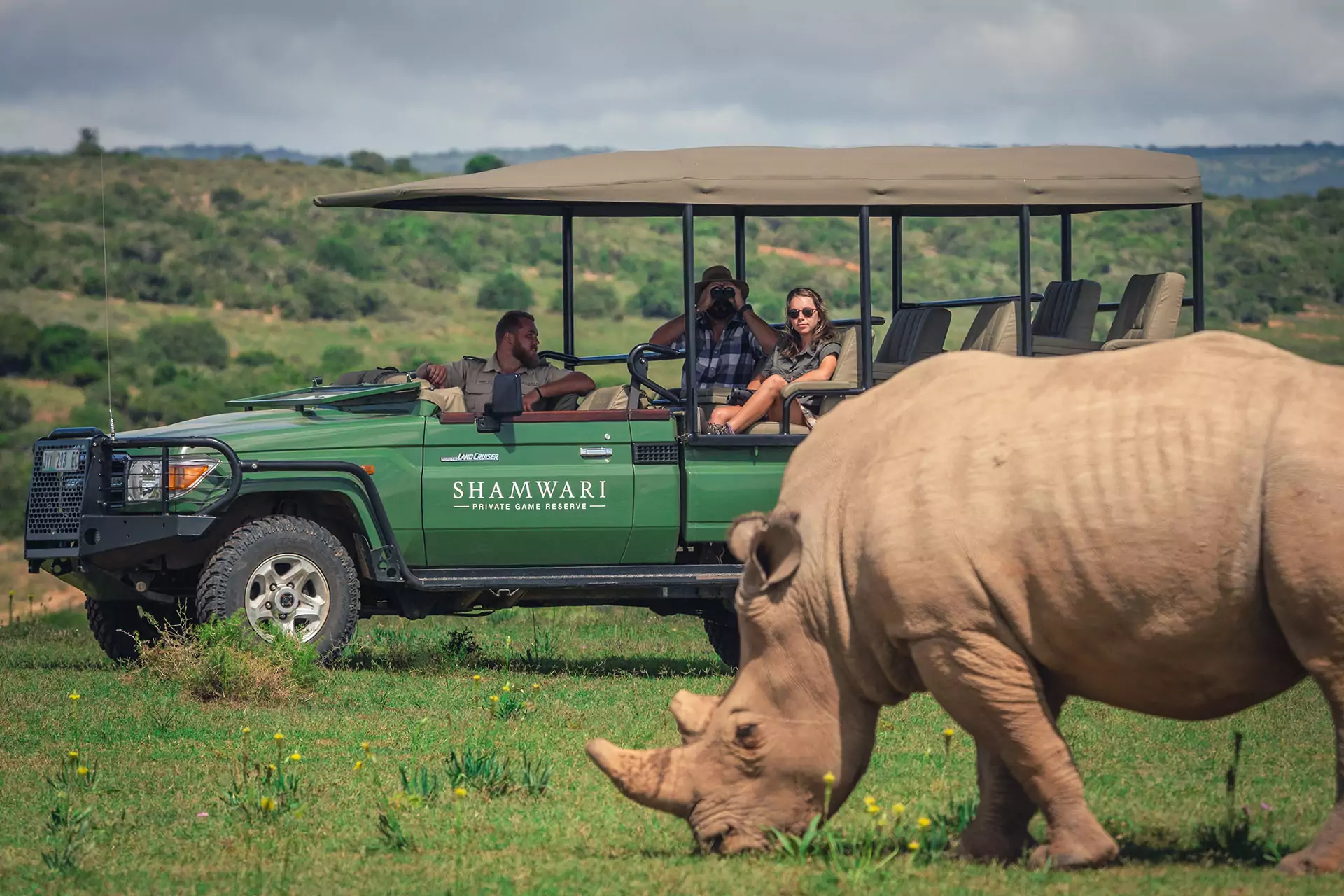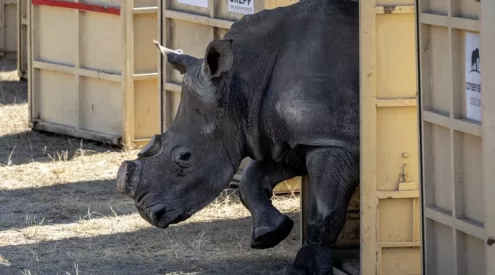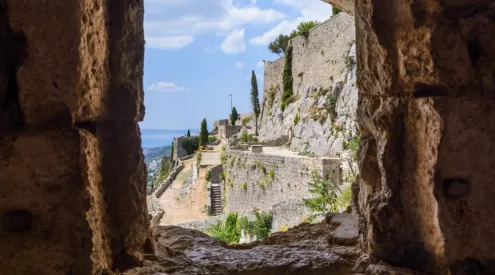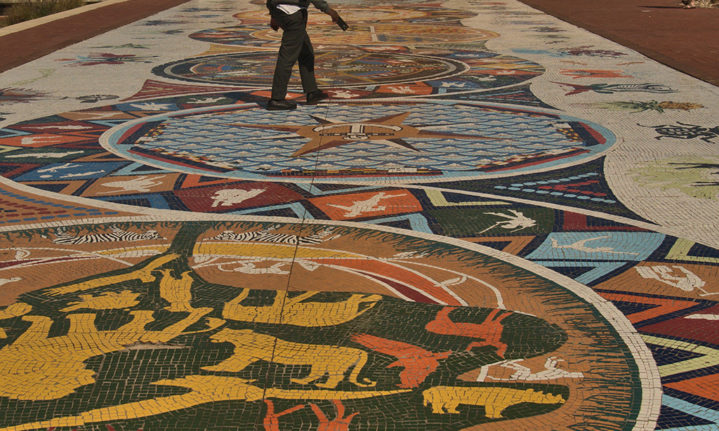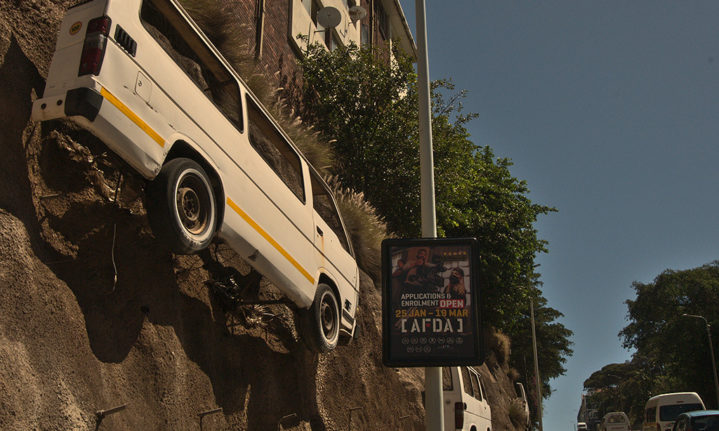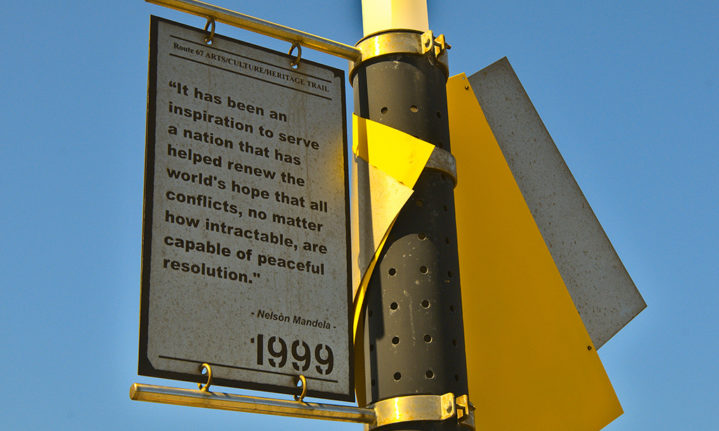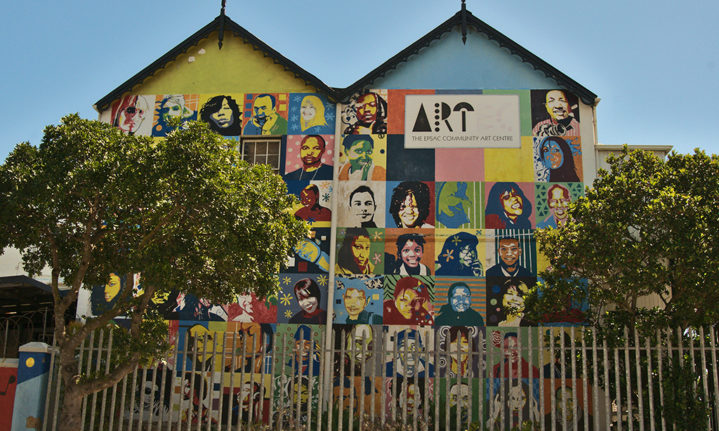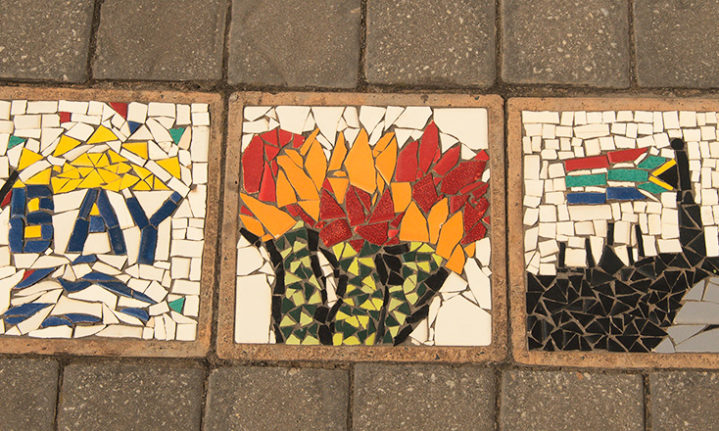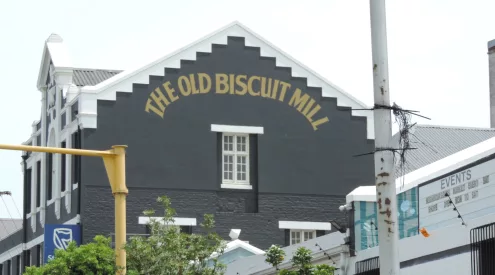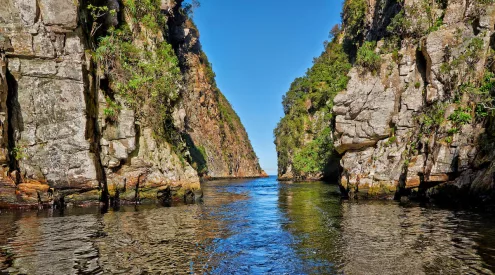An art route with 67 sites dedicated to the number of years former president Nelson Rolihlahla Mandela spent fighting for social justice is a fitting tribute to the great statesman in the Eastern Cape metro named after him.
Words & Photos Marion Whitehead

A detail of Mkhonto Gwazela’s frieze at the base of the Campanile pays tribute to Madosini Mpahleni, one of the last players of the uhadi, the traditional Xhosa musical bow.
It feels like we’re in the bowels of the city. Traffic on the multi-lane Settlers Highway drones dully overhead while we dodge taxis in the terminus below it. It seems a little incongruous to be looking for art here.
But we’re not disappointed. On the other side of a metal palisade fence we find the first artwork on Nelson Mandela Bay Metro’s Route 67 experience. It’s a frieze sculpted out of concrete, the colour of the rich red earth of the Eastern Cape and is the work of Mkhonto Gwazela. It’s a joyful celebration of the area’s indigenous heritage. I recognise Madosini Mpahleni, the famous uhadi (Xhosa musical bow) player whom I’ve been privileged to see perform. And is that the renowned George Pemba painting her portrait? Yet another talented son of the Eastern Cape, Enoch Sontonga, composer of the national anthem Nkosi Sikelela iAfrika, wears his trademark top hat. The detail of their features and clothing is exquisite.
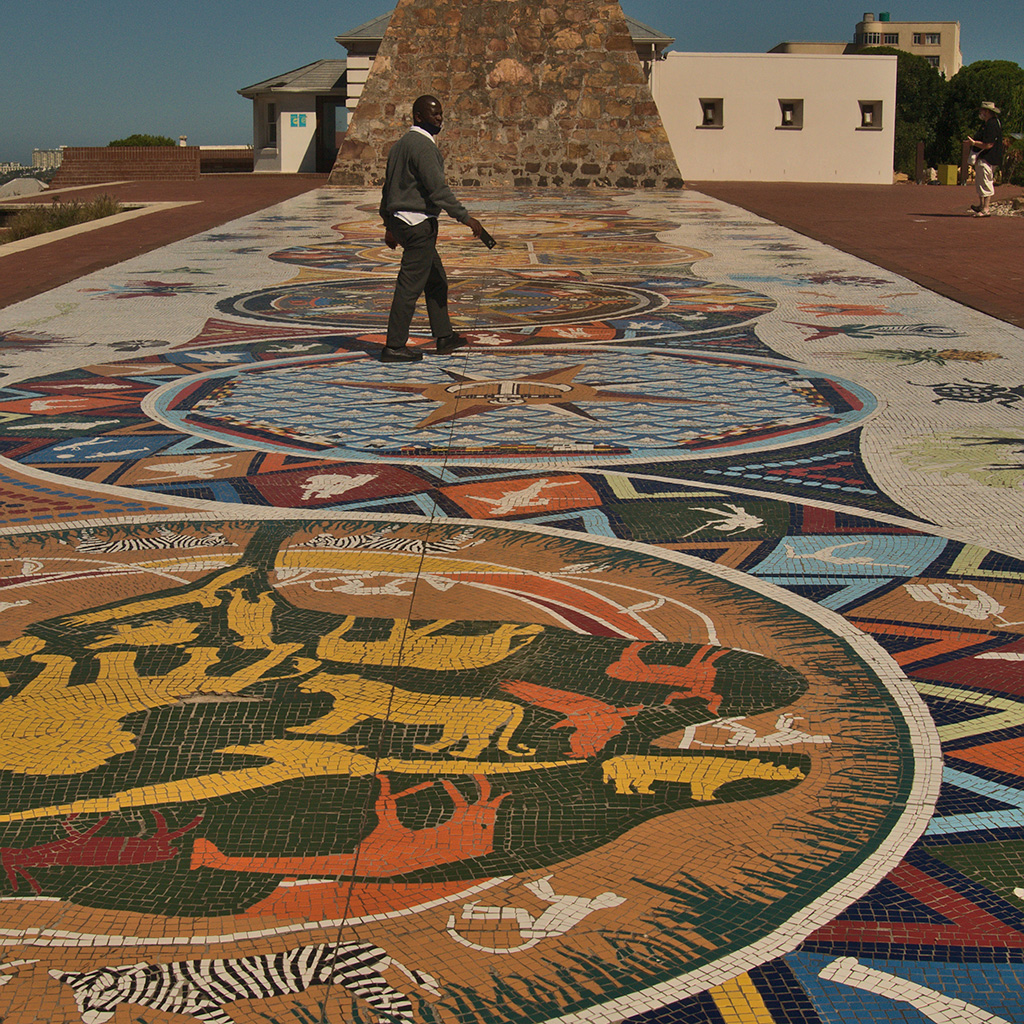
The magnificent multi-hued Piazza Mosaic is a swirl of the Eastern Cape’s cultures, traditions and industries and neatly bridges the past and present, symbolised by the Donkin pyramid on one side and a giant flagpole flying the rugby field-sized new South African flag on the other.
The frieze forms a laager-like semi-circle at the base of the Campanile. The 53.5-metre tower commemorates the landing of British settlers in 1820, so already the symbolism is rich, juxtaposing past and present realities of life in South Africa.
‘The art route symbolises the journey to democracy,’ explains my tour guide, Lyn Haller of Umzantsi Afrika Tours. ‘It was completed in time for the Soccer World Cup in 2010, when international visitors flooded into the city.’
The uphill trudge towards Donkin Reserve on the ridge overlooking the city and harbour reminds us that our freedom was hard won. Striking waymarkers guide us along the route, inscribed with inspiring quotes by our former president, who would have turned 103 on July 18 this year. ‘We need the commitment of leaders at all levels to achieve the better life for all that we promised our people,’ rings as true today as the time that he first uttered it.
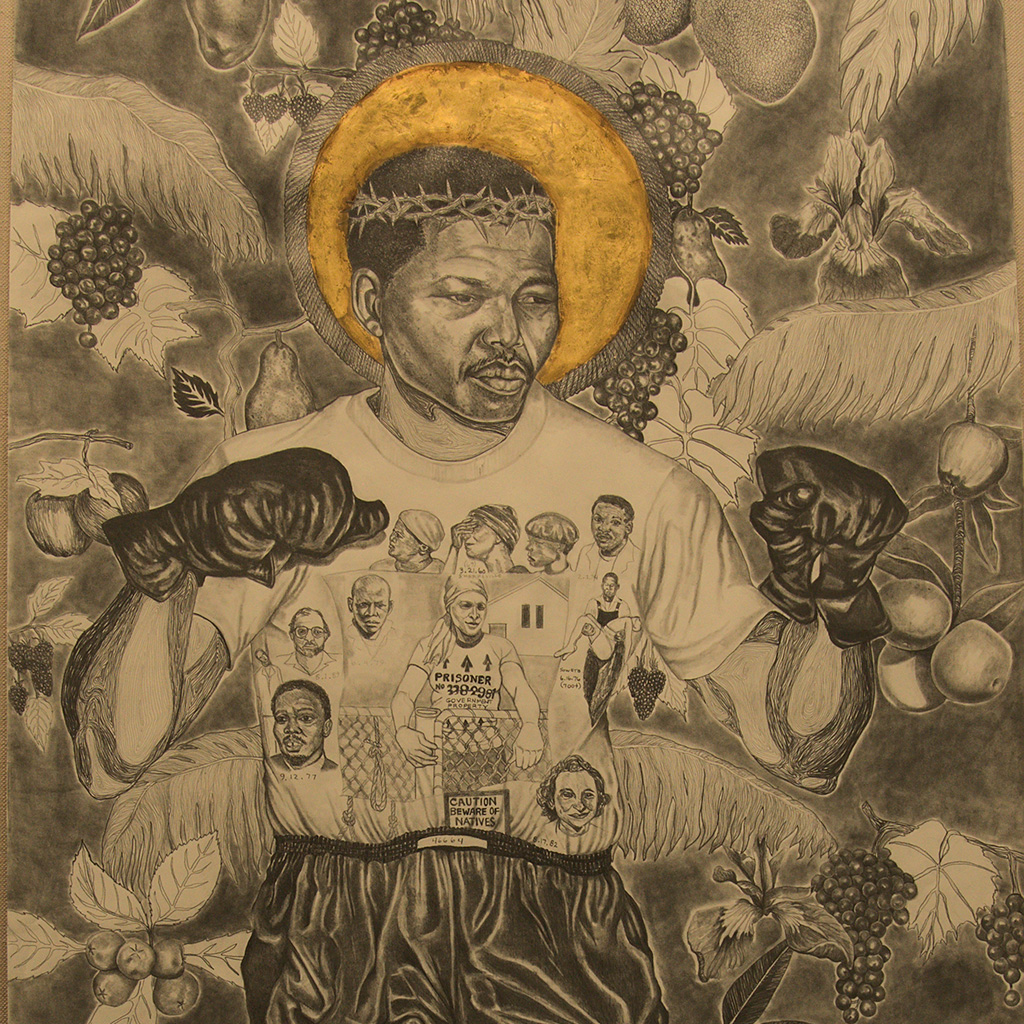
‘Blessed Be the Fruit’ a striking portrayal of Madiba by US artist Traci Mims, was on loan to the Nelson Mandela Metropolitan Art Museum from Gqeberha’s sister city of Jacksonville, Florida in the USA.
Lubhi Mtati’s evocative portraits of young South Africans from different cultures brighten the pillars holding up the Settlers Highway. The paving we walk on is inscribed with words depicting the values held dear in a democracy: Caring. Hlonipha (respect). A colourful mural celebrating commuters and their daily journeys leads us to the Fishbone, an architectural element that visually links the old Jetty Street from the harbour to Vuyisile Mini Square, the old marketplace at the historic heart of the city, now renamed after the local struggle hero.
Lyn points out fine heritage buildings such as City Hall, the Feather Market, the old library and the Prester John Monument. They sit cheek by jowl with examples of depressing urban decay. ‘I remember hearing the prisoners singing in the cells below the street,’ says Lyn as we pass by the boarded-up former magistrates court building.
We cheat and jump in Lyn’s vehicle to drive the next section as she says the stairway past St Mary’s Cathedral has become a mugging hotspot.
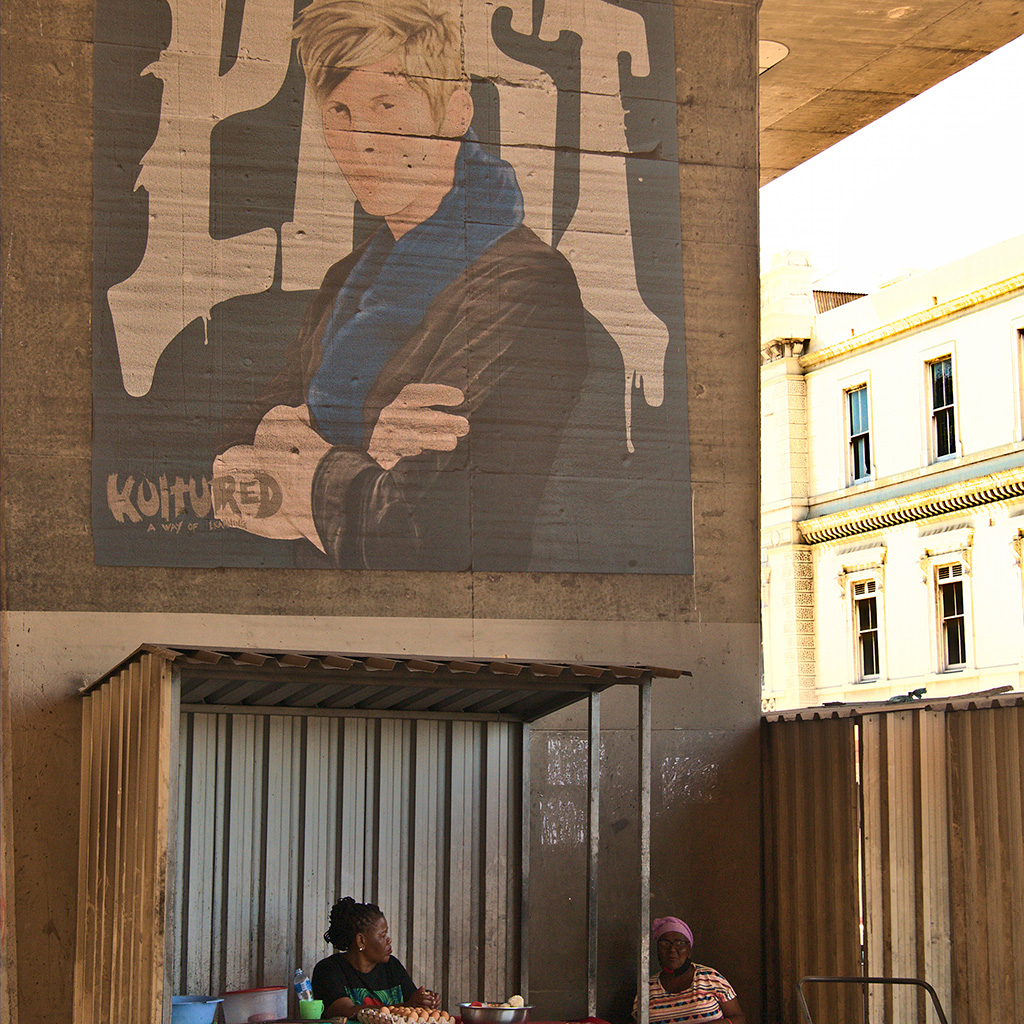
Bold art enlivens the bowels of the city on the pillars holding up the Settlers Highway.
Soon we’re at the foot of the Mosaic Stairs that lead from the turbulence of the old era to a new dawn, symbolised by an explosion of colour. The winding path becomes a voting queue, where more than 3 000 of the city’s youth made their mark with yellow Xs.
‘The idea was to make the route as participative as possible,’ says Lyn as we drive around the perimeter of Donkin Reserve. She points out the Fish-Bird, a sculpture by Mxolisi Sapeta, which symbolises the transformation of the site from a hobo hangout to a tourist magnet. We park near the old lighthouse and the tourism office, housed in the former lighthouse keeper’s cottage, and marvel at the view of the city and Algoa Bay.
Most striking of the artworks scattered about the reserve is the Piazza Mosaic, a 470m2 mosaic that celebrates the multi-cultural heritages of the province’s people, their industries and local fauna and flora. Created by a ceramic collective of Nelson Mandela Metropolitan University, it lies between the Donkin Pyramid and the Great Flagpole – which is bare today.
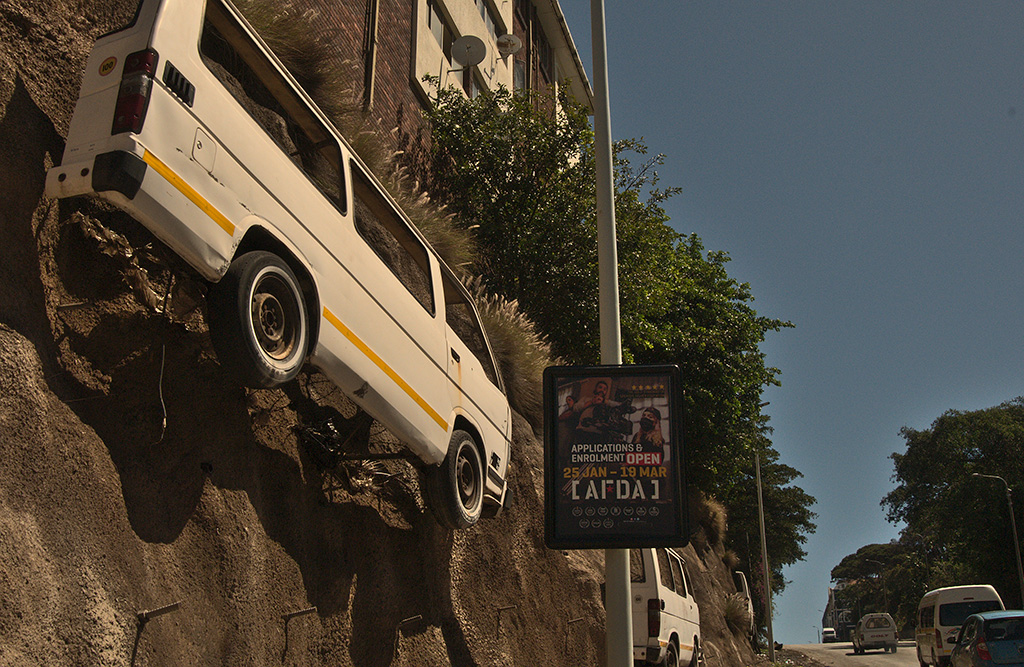
Taxis appear to levitate above the traffic in this art installation in John Kani Road.
‘The flag is about the size of a rugby field and they don’t fly it when it’s windy,’ observes Lyn. Apparently this icon of the Windy City tore in a strong wind and fixing it is no mean feat…
We stroll to the head of Voting Line, an art installation of life-size laser-cut steel figures, where Tata Mandela stands in the sunshine welcoming democracy with a triumphant Amandla salute. This selfie hotspot is definitely the highlight of the route but by no means the end. Ahead of us, there’s still the Athenaeum, ArtEC and the Mandela Metropolitan Art Museum, all within walking distance, as well as artworks further afield at the South End Apartheid Museum and Uitenhage’s Market Square. The journey to democracy continues. A luta continua!
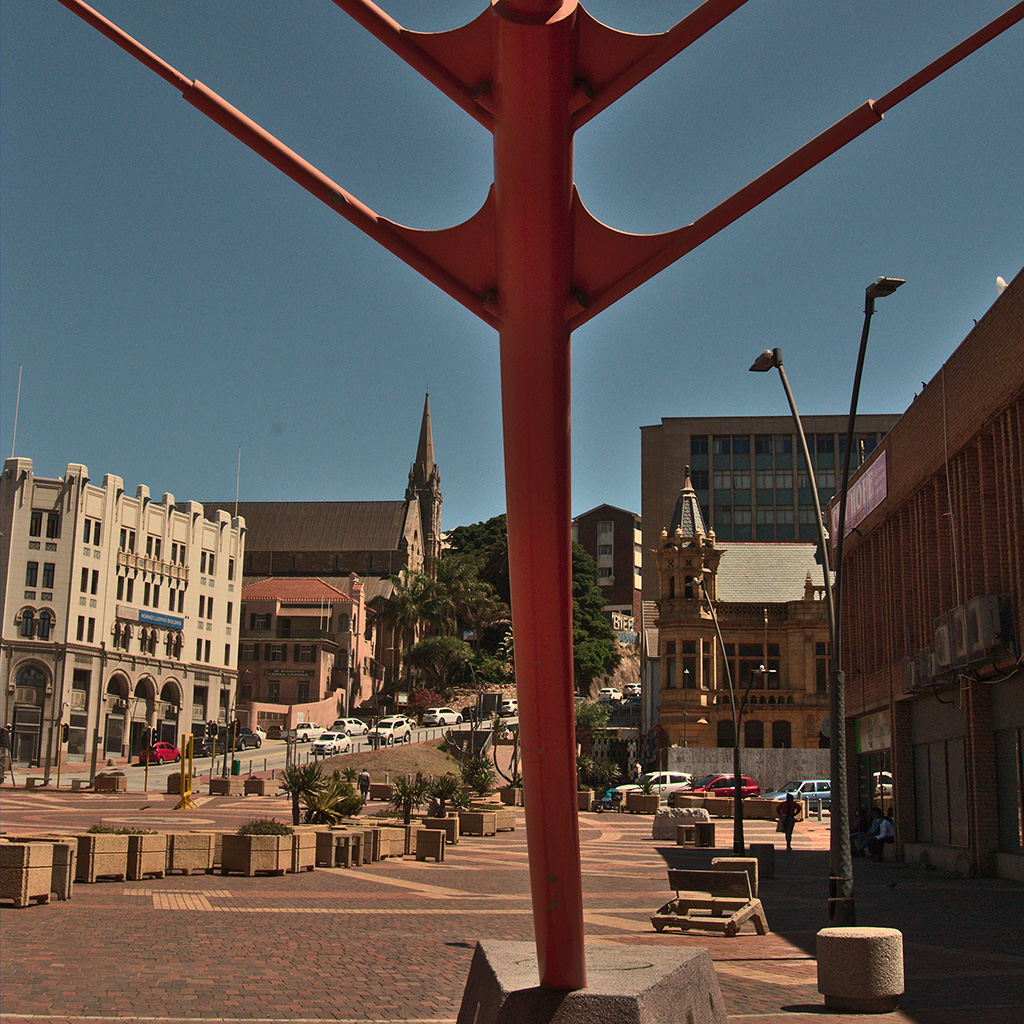
The FishBone is a striking architectural element that links the pedestrianised Jetty Street with Vuyisile Mini Square in the heart of the city.
Transforming a city through art
‘We wanted a tourism product to showcase President Mandela’s life,’ says Mandela Bay Development Agency’s Dorelle Sapere, who was the brains behind creating the Route 67 experience. ‘The walk is a journey that reflects the struggle for democracy, starting in a dark, difficult area around the Campanile, up to the biggest South African flag in the world. It’s a symbolic uniting of the city.’
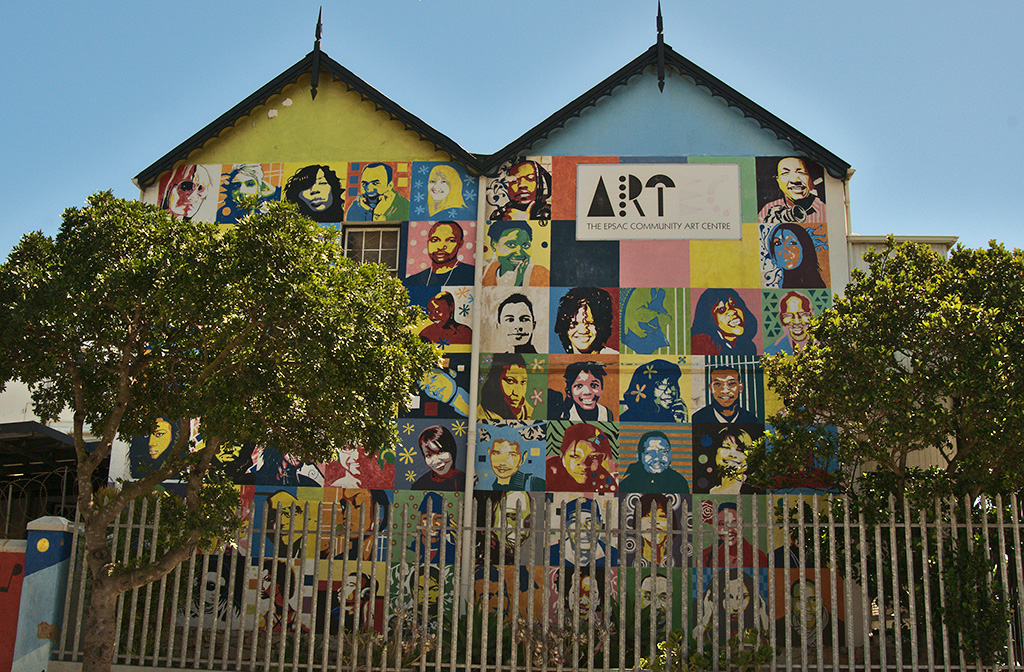
The mural on the wall of ArtEC Community Centre is an inspiration to the students who study there.
Sixty-seven young and emerging artists got jobs out of the project, and schoolchildren and students from Nelson Mandela Bay University were involved in installations such as the big mosaic on Donkin Reserve and the democracy pathways.
‘This approach put people first,’ says Sapere. ‘It was a journey of public art and capacity building. We have an incredible resource of artists and musicians in this city. They just need opportunities so we can retain our talent and not lose them to Joburg and Cape Town.’
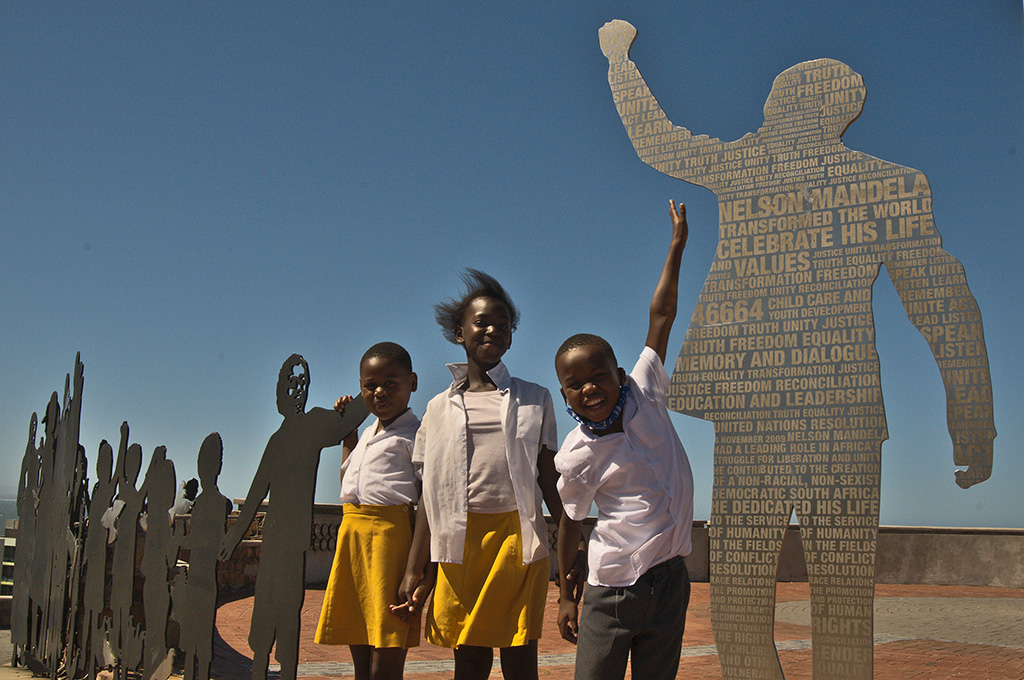
This selfie hotspot, with Madiba leading the Voting Line in Donkin Reserve, is a favourite with Nadia Mahachi and siblings Khristens and Shane Jacobs on their way home from school.
Favourite art pieces
I was blown away by the mosaics. Not just the big Piazza Mosaic next to the flagpole at Donkin Reserve depicting the different industries, cultures and history of the area, but also the small Mosaic Moments surrounding the base of the lighthouse (right). These colourful handprints and icons of the area were made by a collective of young artists. I did a double take when I saw the mosaic at the Athenaeum, Harmony in Nature. It uses maths and an optical illusion technique to reflect the floral artwork in a polished surface, just like Michelangelo did centuries ago. Inside, I was charmed by 67 Beaded Quotes from Madiba, vibrantly crafted by 30 Eastern Cape beaders. One heartfelt square spells ‘Evelyn,’ the name of Mandela’s first wife. Sometimes words are just not adequate…

Trip Planner

Stay Here
Catch the holiday vibe and stay on the Humewood/Summerstrand beachfront, close to eateries, McArthur’s Pools, Bayworld and the Boardwalk Entertainment Complex. The esplanade is lined with hotels, such as City Lodge (R1 200/room; and the Courtyard Hotel (from R1 350/room).
clhg.com
041 583 4655
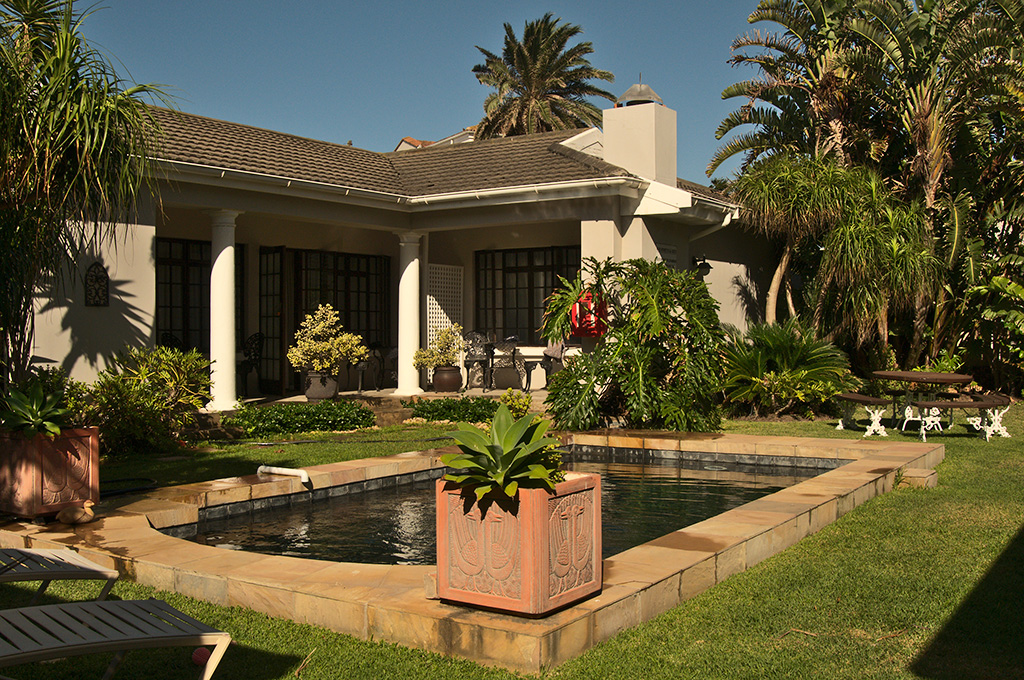
Beachwalk B&B
I chose to stay at the Beachwalk B&B, a few hundred metres from popular Hobie Beach in Summer-strand. There are 10 tastefully decorated guest rooms, all with their own entrances, surrounding a courtyard with a plunge pool. Secure parking and quality percale bed linen make for a good night’s sleep, and the mini bar fridge and microwave oven in each room mean you can heat up a ready-made meal if you don’t feel like going out to eat every night. From R672 pp sharing. info@beachwalk.co.za
beachwalk.co.za
041 583 3594

Way-markers featuring Madiba quotes guide visitors along this unique art route.
Need to Know
Route 67 starts at the Campanile beside the harbour and winds up to Donkin Reserve, then continues to the Athenaeum, ArtEC and Mandela Metropolitan Art Museum nearby, as well as sites further afield at the South End Apartheid Museum and Uitenhage’s Market Square.
It can be done as a half-day self-guided tour with a brochure collected from the tourism office in Donkin Reserve. Here you can also pick up a route ambassador to accompany you, particularly for the dodgy parts of the city (no charge, but a tip is appreciated).
nmbt.co.za
041 585 8884
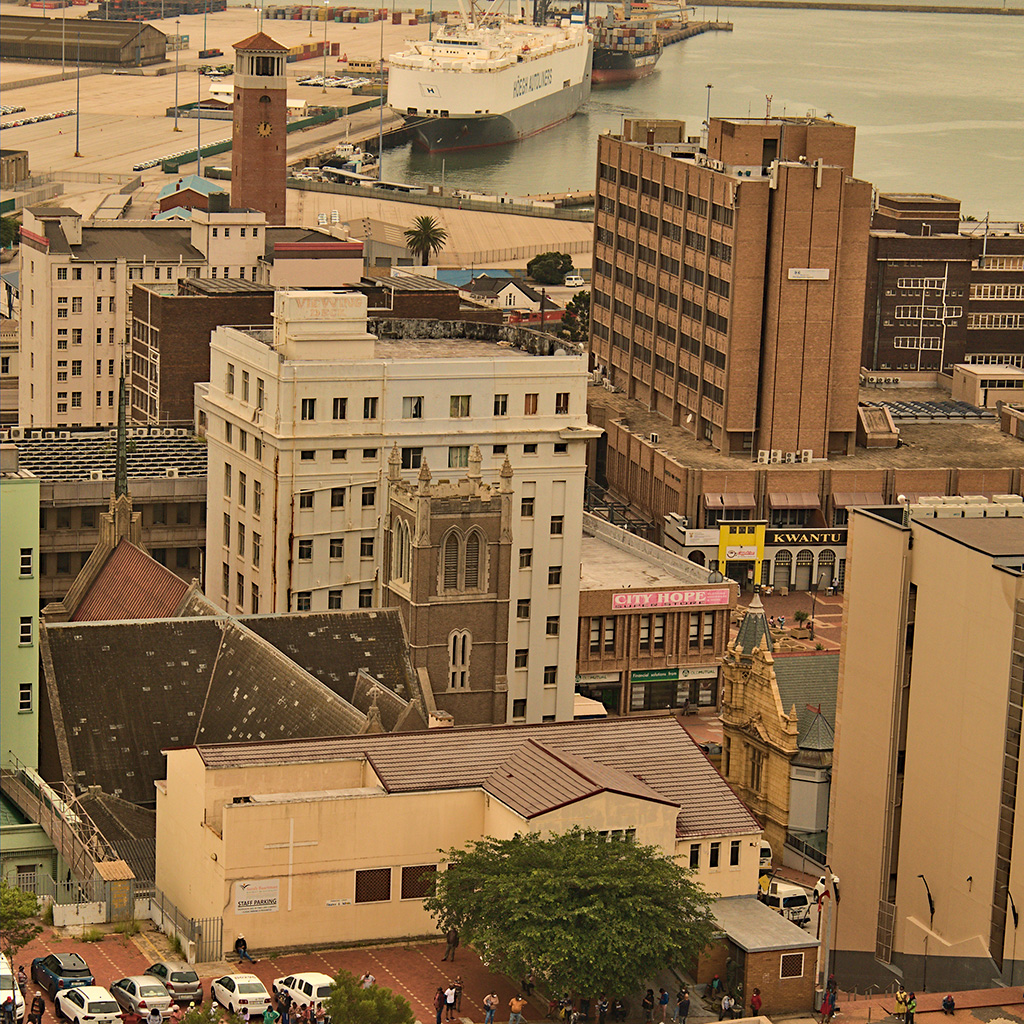
The Campanile, in the distance
Or book a professional guide from Umzantsi Afrika Tours. R350pp for 3–6 people for a 2–3 hour tour.
041 368 9008, 082 302 2690,
tours@umzantsi.co.za, umzantsi.co.za

